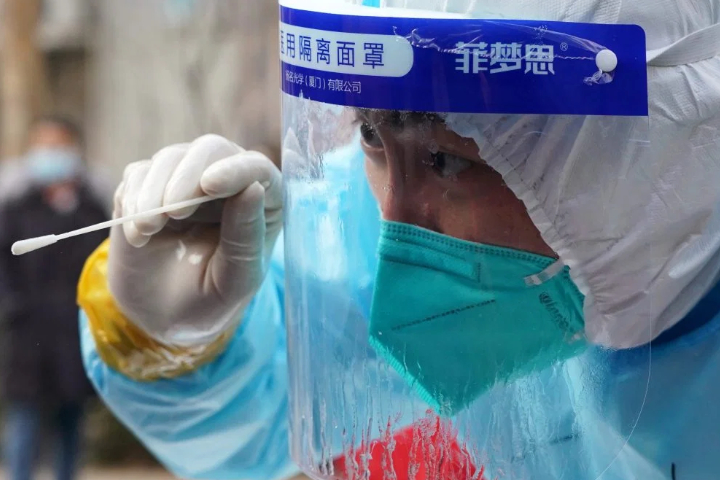
China Introduces Anal Swabs To Combat COVID-19

Ahead of the Lunar New Year Holiday period, mainland China has announced it will introduce a raft of new measures including anal swabs, aimed at curbing an increasing rise in COVID-19 cases. In recent years it is estimated that close to three billion people would traditionally travel during this period.
What is most alarming are reports surfacing that say these new measures will unfairly target groups deemed as being of a higher risk and will include four tests, not only will these individuals be subjected to a nasal and throat swab but also a blood test and an anal swab.
The theory behind the introduction of these new tests comes from a paper published in August 2020 by a number of Chinese researchers which concluded, “anal swabs might be the optimal specimen for SARS-CoV-2 detection to evaluate hospital discharge of COVID-19 patients… patients with positive stool results require further isolation until the virus is completely eliminated.”
Some tests have already been conducted, with Li Tongzeng, a Deputy Director in charge of infectious disease at Beijing’s You’an Hospital saying in an interview with CCTV, “if we add anal swab testing, it can raise our rate of identifying infected patients. But of course, considering that collecting anal swabs is not as convenient as throat swabs, at the moment only key groups such as those in quarantine receive both.”
Many in China were quick to take to social media to voice their concerns over the new measures, with one user on China’s Twitter-like Weibo service saying, “low harm, but extreme humiliation.” While another proclaimed, “everyone involved will be so embarrassed.”
Speaking with the state-run Beijing News newspaper, one woman from the northern city of Tangshan said the anal swabs were “a bit embarrassing” but “for our [own] good.”
The idea, though bizarre, may have some merit, with authorities in Australia regularly undertaking waste water monitoring to identify the possible presence of COVID-19 in local communities.
However, the news comes after Beijing recently announced tougher and longer stints in quarantine for international arrivals. These new measures involve 14 days of hotel quarantine, seven days of home quarantine and seven days of health monitoring. Similar measures were also introduced in the provinces of Jilin and Zhejiang and the city of Dalian.
Though as yet, no plans have been made to introduce mandatory anal testing for international arrivals.









